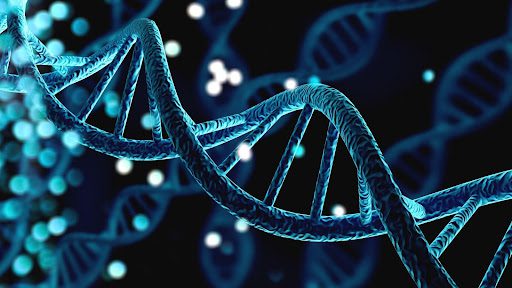Obsessive-compulsive disorder, or OCD, is a mental health condition that can cause intrusive thoughts and repetitive behaviors. While the causes of OCD are not fully understood, there is evidence that OCD genetic is possible. If you have OCD or a loved one has been diagnosed with OCD, it is important to understand how genetic predisposition impacts this disorder, and we will provide some tips to manage the condition.
Contents
What Does OCD Genetic Mean?
 OCD genetic is described as a genetic predisposition to developing OCD. This means that if you have a family member with OCD, you may be more likely to develop the disorder yourself. While having a family member with OCD does not guarantee that you will develop the disorder, it does increase your risk.
OCD genetic is described as a genetic predisposition to developing OCD. This means that if you have a family member with OCD, you may be more likely to develop the disorder yourself. While having a family member with OCD does not guarantee that you will develop the disorder, it does increase your risk.
To put it in simple words, OCD refers to obsessive-compulsive disorder which is a mental health disorder. A person with OCD genetics has a higher chance of developing this disorder. Although the leading cause of OCD is unknown, it is speculated that both genes and environment play a part in its development.
If you think you may have OCD, or if you are concerned about your risk of developing the disorder, there are things you can do to manage your risk. Also, you can talk to your doctor about your concerns. While there is no cure for OCD, there are treatments that can help you manage the symptoms and live a healthy life.
Is Genetically-Inherited OCD Possible?
Many people with OCD will often wonder if their condition is genetic. After all, it does seem to “run in families”. And, indeed, research has shown that OCD is partially heritable. But what does that really mean?
In short, it means that if you have OCD, there is a chance that it was passed down to you from a parent or grandparent. But it’s important to remember that just because OCD is partially heritable, that doesn’t mean that it’s 100% genetic. There are many other factors (environmental, psychological, etc.) that can contribute to the development of OCD.
Studies have suggested that OCD genetics is actually quite complex and involves many different genes, rather than just one “OCD gene”. So far, researchers have identified several areas of the genome that may be involved in the development of OCD. However, much more research is needed in this area.
For example, one study found that people with OCD were more likely to have a specific variation in the serotonin transporter gene (SERT). This gene is involved in the transport of serotonin, which is a neurotransmitter that plays an important role in mood and emotion.
Overall it can be said that, yes, OCD can be genetic. However, it’s important to remember that there are many factors that contribute to the development of OCD and it is not fully understood. If you are struggling with OCD, please remember that you are not alone and there is help available.
What Are The Other Causes Of OCD?
As we have seen, genes are one of the main causes of OCD. However, there are other potential causes as well. Let’s discuss some of the other causes of OCD:
Environmental factors
Some research suggests that certain environmental factors may play a role in the development of OCD. For example, exposure to bacteria or viruses has been linked to OCD. Also, it can be triggered by a traumatic event.
Stress
It is well-known that stress can trigger OCD. A stressful event may be something like the death of a loved one, divorce, or job loss. There are actually two types of stress that can trigger OCD: acute stress and chronic stress. Acute stress is the type of stress that goes away after a short period of time, while chronic stress is the type of stress that lasts for an extended period of time.
Changes in brain chemistry
Certain changes in brain chemistry can also lead to OCD. For example, an imbalance of serotonin (a neurotransmitter) has been linked to OCD. This chemical imbalance may be a result of genetic factors. However, changes in brain functioning can be developed individually as well. A change in serotonin levels can be the result of trauma, infection, or other environmental factors.
Other mental health disorders
 There is also a link between OCD and other mental health disorders. People with OCD are more likely to have depression, anxiety, and eating disorders. This may be due to the fact that OCD can cause severe stress and isolation.
There is also a link between OCD and other mental health disorders. People with OCD are more likely to have depression, anxiety, and eating disorders. This may be due to the fact that OCD can cause severe stress and isolation.
It is important to understand the causes of OCD in order to effectively manage the disorder. If you or someone you know is struggling with OCD, there are many resources available to help.
How To Diagnose OCD Genetic?
The diagnosis of OCD genetic can be tricky and it is important to seek professional help if you think that you or a loved one may be suffering from the disorder. A mental health professional will be able to ask questions and perform tests to rule out other possible causes of the symptoms. If OCD genetic is suspected, a course of treatment can be recommended.
Usually, a diagnosis of OCD genetic is made after a person has tried different treatments and they have not worked. This can be very frustrating for both the sufferer and their loved ones. But a mental health professional can help you to understand the disorder and find a treatment that is right for you.
The methods of diagnosis include:
- Asking questions about your symptoms and their severity
- Checking for physical causes of the symptoms (such as a head injury)
- Administering psychological tests
- Observing your behavior and how you respond to different situations.
OCD genetic can be a difficult disorder to live with, but with an accurate diagnosis and the right treatment, you can live a full and happy life. If you think that you or someone you know may be suffering from OCD genetic, don’t hesitate to seek professional help.
How Can You Manage?
When you have OCD genetic this means that you may have a higher risk of developing OCD. However, this does not mean that you will definitely develop the disorder. There are many things that you can do to manage your risk and help prevent OCD from developing. Some tips for managing your risk include:
Learning about OCD and what causes it
This can help you be more aware of your thoughts and behaviors, and help you to identify any early warning signs of OCD. There are several ways to learn about OCD, including reading books or articles, talking to a therapist, or attending support groups. When you are completely informed about OCD, you will be better equipped to manage your risk. Otherwise, it can be easy to misinterpret your thoughts and behaviors, and mistakenly think that you are developing OCD.
Staying healthy and balanced
A healthy lifestyle can help to reduce your risk of developing OCD or other mental health disorders. Eating a balanced diet, getting regular exercise, and managing stress can all help to keep your mind and body healthy. Also, you must maintain a healthy lifestyle because it can help to manage your OCD symptoms. For example, when you are feeling stressed, exercise can help to relieve some of the symptoms.
Avoiding triggers
If you know what makes your OCD worse, it is important to avoid these triggers. This can help to prevent the disorder from developing or getting worse. Triggers are simply things that make your OCD symptoms worse. For example, some people with OCD are triggered by certain words, colors, or numbers. Others may be triggered by certain activities or situations. If you can identify your triggers, it is important to avoid them as much as possible.
Getting treatment early
 If you do notice any early signs of OCD, it is important to get treatment as soon as possible. Early treatment can be very effective in managing the disorder. There are numerous treatments available for OCD, and a variety of different types of therapists who can help.
If you do notice any early signs of OCD, it is important to get treatment as soon as possible. Early treatment can be very effective in managing the disorder. There are numerous treatments available for OCD, and a variety of different types of therapists who can help.
Cognitive behavioral therapy (CBT) is one of the most common and effective treatments for OCD. CBT focuses on helping the individual to understand and change the thoughts and behaviors that are associated with their OCD.
Exposure and response prevention (ERP) is another common form of treatment for OCD. This type of therapy involves gradually exposing the individual to the thoughts, objects, or situations that trigger their OCD. The individual is then taught how to manage their anxiety and not engage in the compulsive behaviors that they typically would.
OCD can be a very debilitating disorder, but there is hope. These are just a few tips for managing your risk of OCD. If you are concerned about your risk of developing the disorder, it is important to speak to a mental health professional. They can help you assess your risk and develop a plan for prevention or treatment. Remember, you are not alone in this journey.
Conclusion
In conclusion, OCD genetic is defined as a mental disorder that is characterized by repetitive, intrusive, and unwanted thoughts (obsessions) and/or behaviors (compulsions) that the person feels compelled to do. The link between OCD and genetics is not fully understood, but it is thought that there may be a genetic predisposition for the disorder.
There are many ways to manage OCD, including medication, therapy, and self-help strategies. You should speak with a mental health professional if you think you may have OCD. He or she can help you make a treatment plan that is best for you. There are many effective treatments for OCD, so do not hesitate to seek help.
You can also contact Therapy Mantra for more information and resources. We have a team of professional therapists who can provide you with the support and guidance you need to recover from this condition. Contact us today to learn more about our services. You can also book an online therapy or download our free OCD treatment app on Android or iOS.


